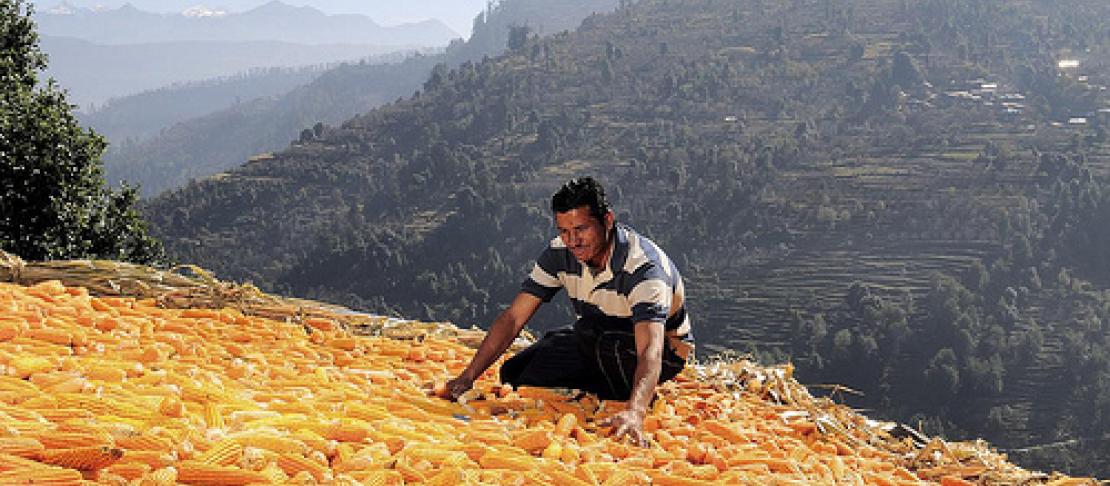Private investments – a fair deal for small-scale farmers?

By Cecilia Schubert
Biofuel is hot commodity, and the private sector is looking at small-scale farms in developing countries to help produce crops to feed the industry. Understandably, this is causing controversy, with accusations of land-grabbing by private companies, and fears that farmers may swop food crops for more profitable biofuel crops, increasing their risk of hunger. But what is actually happening behind the headlines? Can farmers really benefit from the investments or will they only jeopardize food security and degrade the environment? Is it really a fair deal for everyone involved?
These were some the topics discussed during International Institute for Environment and Development (IIED) side event ‘Fair ideas - Making agricultural investments work for small scale farmers’ held on 17 June during the Rio +20 negotiations. Led by Lindiwe Sibanda, CEO of Food, Agriculture and Natural Resources Policy Analysis Network (FANRPAN), the panel addressed challenges and opportunities concerning private sector investment in agriculture. The panel also talked about possible ways forward, particularly implementation of a model that supports and builds on the needs of small-scale farmers.
A small-scale farmer in Africa normally owns less than one hectare of land (sometimes only one-quarter of a hectare), to produce food for the family and sell some crops at the market. In humid areas, some farmers raise livestock in addition to farming, while in dry areas livestock is the primary source of income. Sara Namirembe from World Agroforestry Centre (ICRAF), described the limited scope for expansion of African farms, which makes it difficult to combine both production of food crops and crops aimed for biofuels. In Uganda for instance, farmers who received payment for producing biofuel crops almost eliminated production of food crops entirely, leaving the community food insecure. This is one risk involved in this line of business she explained. Another risk is biofuel crop failure. Who will compensate the farmer and what type of safety nets are there? Currently, she said, these safety nets are rare.
Farmers can, however, improve their negotiation status in relation to the industries investing in their farms, said Ruud van Eck, Director of Diligent Energy Systems. For example joining together and getting organized, is one way of strengthening the voices of farmers. He described how companies want to see farmers organised, to improve communication and the flow of information. Farmers need access to knowledge and resources, markets and infrastructure, he said, and many of these inputs are missing today.
There are many real concerns and challenges, and more research and local participation is needed before we can ensure that there is a win-win situation for everyone involved. Policies and regulations around biofuels and food production are also crucial in order to make sure that farmers and the environment benefit from this process.
But there are also opportunities for farmers. Industries are investing, creating opportunities to expand and intensify they agricultural production. Dr. Sibanda summed up the session by saying that every player has a role to play: the private sector needs to open the way forward and be transparent; researchers have to produce better knowledge about the biophysical and socioeconomic costs and opportunities; and consumer need to raise their voices and acquire information about the situation. Sustainable agriculture needs the private sector and success depends on a stronger commitment by investors, NGOs and policy makers to ensure that investments can contribute to development goals.
The CGIAR Research Program on Climate Change, Agriculture and Food Security (CCAFS) was covering the Rio+20 Conference live between 12 - 22 June. Read the latest stories related to agriculture and food security from the conference. To get the latest updates follow both CCAFS on Facebook and Twitter and Agriculture DayFacebook and Twitter. Join the conversation about agriculture and food security at Rio+20 using #Rio4ag on Twitter.
Cecliia Schubert is a communications assistant at the CGIAR Research Program on Climate Change, Agriculture and Food Security (CCAFS).